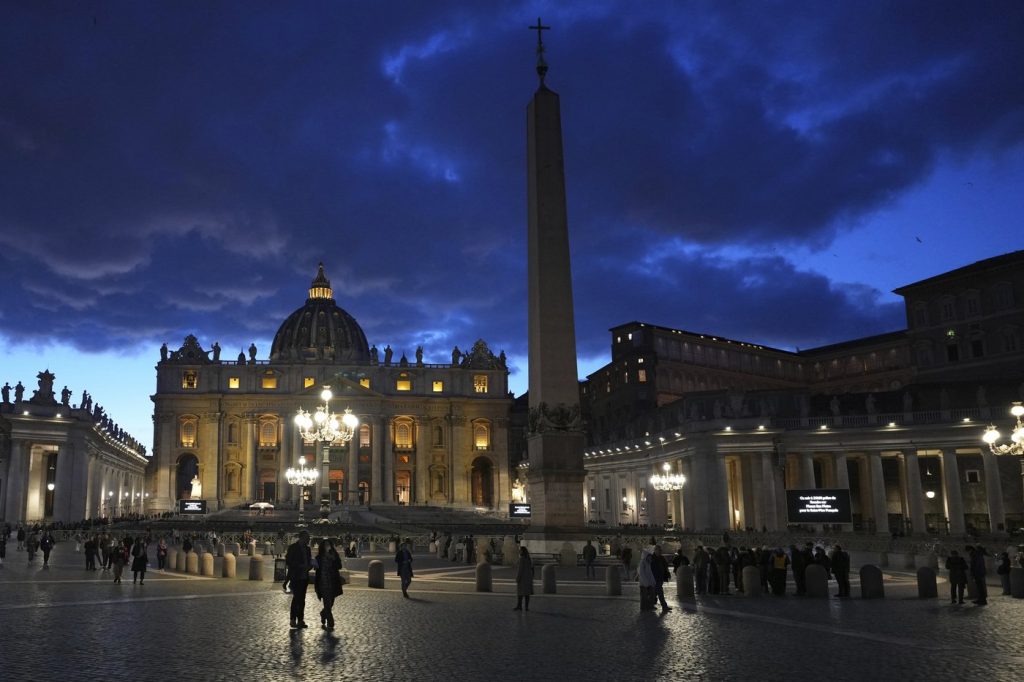VATICAN CITY (AP) – A long-standing taboo within the Vatican discourages speculation about the election of a new pope while the current one is seriously ill. This cultural sensitivity is especially relevant as Pope Francis battles double pneumonia at Rome’s Gemelli hospital. The film "Conclave", which explores the intricate dynamics of a papal conclave, has unexpectedly gained popularity, coinciding with a period of intense media scrutiny surrounding the pope's health.
The film, an adaptation of Robert Harris's novel, has received positive reviews from prominent Catholic publications, including L’Osservatore Romano and Avvenire, praising its respectful treatment of the papal election’s seriousness and its depiction of contemporary issues within the Catholic Church. However, these accolades were published before Pope Francis was admitted to the hospital on February 14 for a complex lung infection, marking an unsettling coincidence between the film’s narrative and current affairs.
As media coverage of Pope Francis's declining health escalates, interest in a potential future conclave grows. Harris, the novelist, has acknowledged the awkward timing of his work's relevance but has drawn the line at discussing it further, deeming it inappropriate. “I’ve been refusing all requests to talk about it,” he stated, expressing hope for the pope's continued tenure.
Pope Francis’s health took a troubling turn when he inhaled vomit during a coughing fit, necessitating non-invasive mechanical ventilation to assist his breathing. Doctors are currently monitoring his condition closely, causing heightened concern among supporters and officials regarding the implications for the church's leadership.
“Conclave,” directed by Edward Berger and starring Ralph Fiennes as Cardinal Thomas Lawrence, delves into the political maneuvering and intrigue that accompany the selection of a new pope. The film illustrates the challenges faced by the church within a narrative that combines thrill with significant emotional weight, addressing both public perception and internal conflict.
The film reportedly resonates with ongoing institutional instability within the Catholic Church, as noted by Massimo Faggioli, a theologian at Villanova University. He cautioned that current internal threats stem from the fear of sexual misconduct scandals rather than external influences, underscoring the gravity of the church's contemporary challenges.
While the film offers a dramatic interpretation of the conclave process, Cardinal Sean O’Malley, a participant in the 2013 conclave that elected Pope Francis, criticized its portrayal of the election. O’Malley emphasized that real-life conclaves are conducted with solemnity and a focus on spiritual guidance, contrasting sharply with the film's more sensationalist approach to political strategy and intrigue.
Despite some dissenting opinions, Catholic media outlets have embraced the film for its cinematic qualities and engaging storytelling. Avvenire commended "Conclave" for its aesthetic merits and meaningful commentary about the church’s state, highlighting its appeal to a broad audience. Critics like Alessandra Comazzi from L’Osservatore Romano have commended the film's ability to navigate the complexities of a conclave while maintaining respect for its deep spiritual significance.
As the community continues to pray for Pope Francis's recovery, "Conclave" serves as a potent reminder of the delicate balance between art, faith, and reality during a pivotal moment in the history of the Catholic Church.










